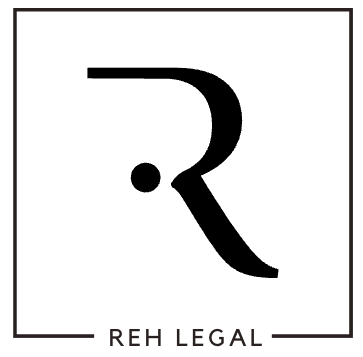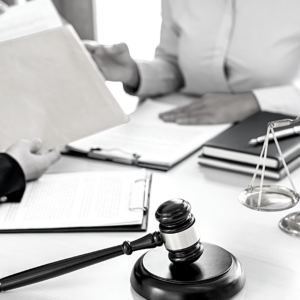
The California Supreme Court recently approved a new ethics rule requiring California licensed attorneys to “snitch” on their peers. What do we have to report and to whom? Well, it depends.
What’s Reportable?
Rule 8.3(a) states an attorney shall report to the State Bar or to another appropriate tribunal when there is “credible evidence” that another attorney has engaged in criminal conduct or conduct involving dishonesty, fraud, deceit, reckless or intentional misrepresentation or misappropriation of funds or property that raises a “substantial question” about the attorney’s honesty, trustworthiness or fitness to practice. This reporting must be done “without undue delay.”
Rule 8.3(b) states that an attorney may, but is not required to, report to the State Bar a violation of the Rules of Professional Conduct or the State Bar Act.
Evaluating the Mandatory Obligation to Report Under Rule 8.3(a)
An attorney will have to go through a series of steps to determine if there’s a duty to report in any particular instance:
- Was there criminal conduct or conduct involving dishonesty, fraud, deceit, misrepresentation or misappropriation?
- Does the conduct raise a substantial question about the offending attorney’s honesty, trustworthiness or fitness to practice law?
- Is there credible evidence?
By and large, it should be easily determinable if the conduct falls into one of the requisite categories. Answering the next question—whether the offending conduct raises a substantial question about the attorney’s honesty, trustworthiness of fitness—is a bit more subjective. Comment [4] clarifies that the term “substantial question” refers to the seriousness of the alleged offense and not the amount of evidence that the attorney knows about.
Let’s assume the attorney can check the boxes for questions one and two but doesn’t have credible evidence. In that case, there’s no duty to report. The rule, on its face, does not create any affirmative duty for the attorney to seek out credible evidence if they don’t already know about it. With that said, an attorney also shouldn’t just bury his/her head in the sand and summarily dismiss evidence that may, in fact, be credible. Comment 4 explains the rule is designed to get at “those offenses that a self-regulatingprofession must vigorously endeavor to prevent” and a “measure of judgment is, therefore, required in complying with the provisions of this rule.”
Before reporting to the State Bar or the appropriate tribunal, the attorney will need to determine if any of the exceptions stated in rule 8.3(c) or (d) apply. Rule 8.3(d), in particular, creates a broad exception and excludes from reporting any “information gained by a lawyer while participating in a substance use or mental health program, or requir[ing] disclosure of information protected by Business and Professions Code section 6068, subdivision (e) and rules 1.6 and 1.8.2; mediation confidentiality; the lawyer-client privilege; other applicable privileges; or by other rules or laws, including information that is confidential under Business and Professions Code section 6234.” It’s entirely foreseeable there will be instances when an attorney knows about conduct that should be reported under rule 8.3(a) and has credible evidence but is, nonetheless, precluded from reporting it under rule 8.3(d).
When and Where to Report
Once it’s determined there is an obligation to report conduct under rule 8.3(a), the attorney then needs to determine when and where to make the report. The attorney is required to report without undue delay. Comment [3] explains the attorney must report “as soon as the lawyer reasonably believes the reporting will not cause material prejudice or damage to the interests of a client of the lawyer or a client of the lawyer’s firm.”
As for where to report, Comment [6] offers guidance. The report can be made either to the State Bar or to a “tribunal with jurisdiction to investigate or act upon such misconduct.” For example, if there is pending litigation before a court and the misconduct arises during the litigation, the reporting attorney could report it to the judge. The key here is that the “tribunal” must have the power to “investigate or act upon” the reported conduct. A non-judicial tribunal, such as private mediation or arbitration, would not have that power. In that case, the report should be made to the State Bar.
Mind Your Ps and Qs
There’s been concern that some attorneys might use this new reporting requirement as a litigation tactic by reporting on opposing counsel. The concern is understandable but probably misguided. Three comments to the rule address the concern:
- Comment [8] reminds us that it is a violation of rule 3.10 to threaten criminal, administrative or disciplinary complaints in order obtain an advantage in a civil dispute.
- Comment [9] warns us that attorneys can “be disciplined for participating in an agreement that precludes the reporting of a violation of the rules.”
- Comment [10] cautions that “lawyers may be subject to criminal penalties for false and malicious reports or complaints filed with the State Bar or be subject to discipline or other penalties by offering false statements or false evidence to a tribunal.”
Given the consequences and risks to one’s license, it seems unlikely that a deluge of snitching on opposing counsel is on the horizon.
Will the New Rule Make a Difference?
The million-dollar question is whether this new rule will make a difference. On the plus side, it does give attorneys a pathway and some guidance on reporting misconduct. Whether and to what extent it’s used, remains to be seen. Nonetheless, attorneys will need to think carefully about their obligations when confronted with potential misconduct.

